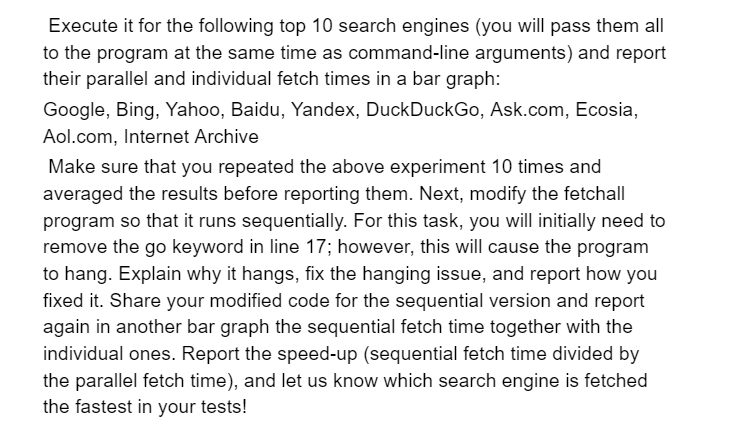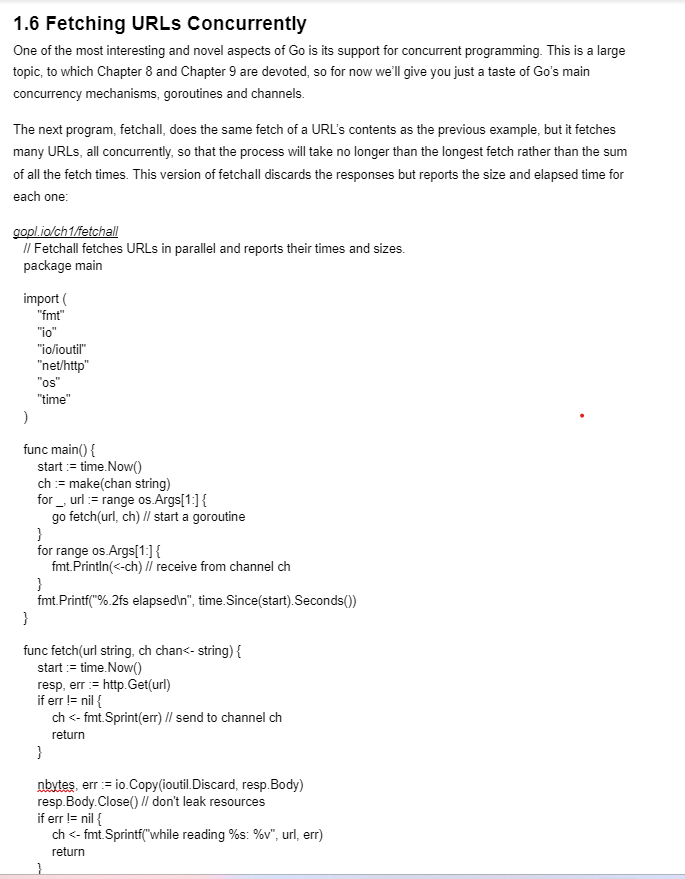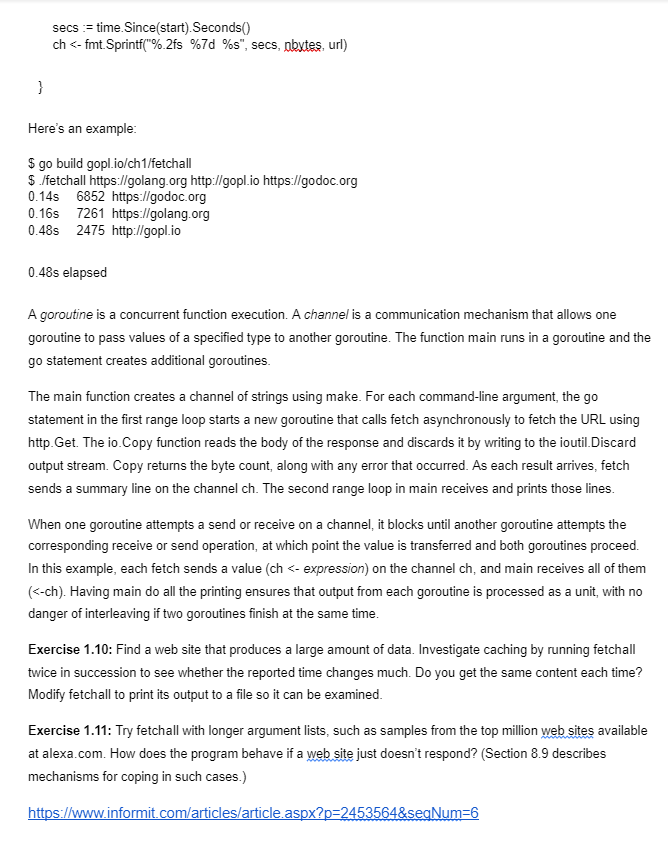Answered step by step
Verified Expert Solution
Question
1 Approved Answer
Study and understand how the fetchall program from the reference Reference below. Execute it for the following top 10 search engines (you will pass them

Study and understand how the fetchall program from the reference Reference below. 

Step by Step Solution
There are 3 Steps involved in it
Step: 1

Get Instant Access to Expert-Tailored Solutions
See step-by-step solutions with expert insights and AI powered tools for academic success
Step: 2

Step: 3

Ace Your Homework with AI
Get the answers you need in no time with our AI-driven, step-by-step assistance
Get Started


